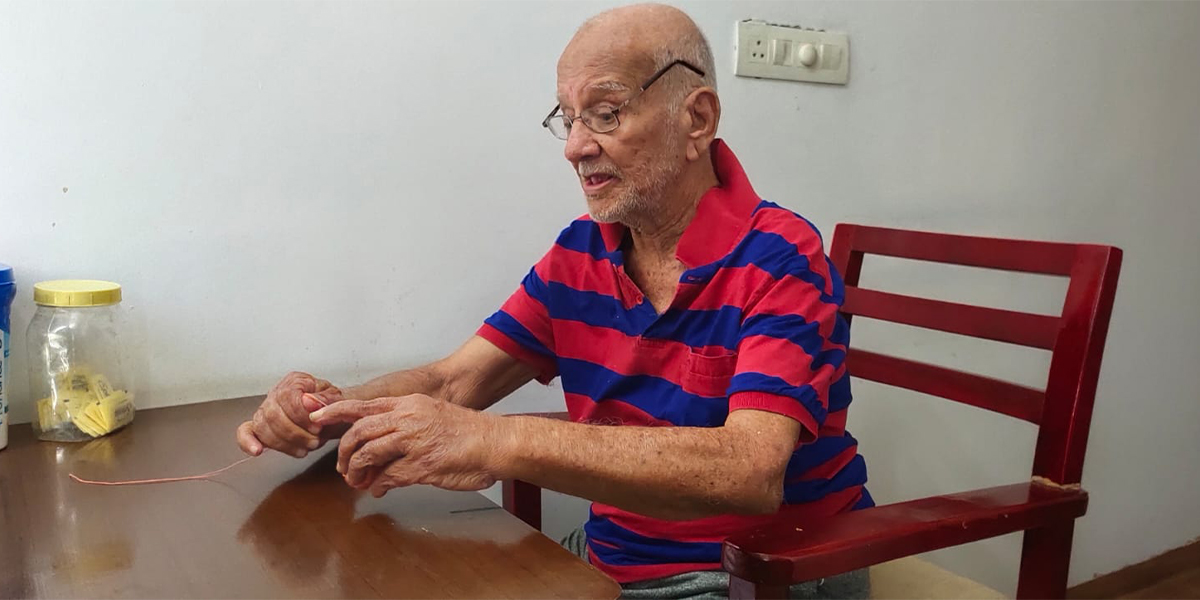Athulya Assisted Living: India's most comprehensive dementia care for the elderly
Dementia is a
broad term for serious loss of memory, language, problem-solving, and other
mental functions that interfere with everyday living and which required skilled
nursing care. The most common cause of dementia is Alzheimer's disease.
Dementia
affects millions of individuals and becomes more frequent as people age, but it
is not a natural part of the aging process. Dementia patients are unable to
manage their emotions, and their personalities may change.
Dementia
varies in intensity from moderate to severe, with the mildest stage affecting a
person's functioning the least and the most severe requiring the person to rely
entirely on others for basic everyday functions such as feeding themselves.
Symptoms
➢
Memory loss, lapses in judgment, and confusion
➢ Difficulty in speaking, analyzing, and
expressing ideas, as well as reading and writing
➢
Being disoriented and wandering in a familiar
neighborhood
➢
Experiencing difficulties handling finances
properly
➢
Repetition of questions
➢
Using unfamiliar terms to describe familiar
objects
➢
Takes longer to do routine normal things
➢
Loss of interest in daily activities or events
➢
Experiencing hallucinations, delusions, or
paranoia
➢
Making rash decisions
➢
Not caring about the feelings of others
➢
Loss of balance and mobility issues
Additional disorders that lead to dementia
include;
➢
Normal pressure hydrocephalus which was an
abnormal accumulation of cerebrospinal fluid in the brain.
➢
Creutzfeldt-Jakob disease is an uncommon
neurological condition.
➢
Huntington's disease is a progressive, genetic
brain disorder.
➢
Repeated traumatic brain damage causes chronic
traumatic encephalopathy.
➢
HIV-associated dementia is a rare condition
caused by the HIV virus spreading to the brain.
➢
Long-term excessive alcohol consumption.
➢
A concussion is a type of head injury caused by
a fall or an accident.
➢
Psychological issues such as stress, anxiety,
and depression.
➢
Delirium is a sudden state of confusion and
disorientation.
➢
Tumors, vitamin deficiency, medication side
effects, or thyroid, kidney, or liver disorders can all produce major problems
with memory that resemble dementia.
Several
causes of dementia symptoms can be treated and even reversed.
Types:
Alzheimer's disease - The most prevalent dementia among
senior citizens is Alzheimer's disease. It is caused by abnormalities in the
brain, such as unusual protein buildups known as amyloid plaques and tau
tangles.
Frontotemporal dementia -
Frontotemporal dementia is a rare kind of dementia that often affects adults
under the age of 60. It is linked to abnormal levels or forms of the proteins
tau and TDP-43.
Lewy body dementia - Lewy body dementia is a type of
dementia that is characterized by abnormal deposits of the protein
alpha-synuclein.
Vascular dementia - Vascular dementia, a kind of
dementia that caused by diseases that harm or disrupt the flow of blood and
oxygen to the brain.
Mixed dementia - A mixture of two or more kinds of
dementia is known as mixed dementia. Investigations revealed that many patients
had a mix of brain disorders linked with several kinds of dementia.
Prevention
Dementia is not easy to prevent since the cause is often unknown. Those with dementia caused by a stroke, on the other hand, may be able to avoid future falls by decreasing their risk of heart disease and stroke.
➢
Avoid Smoking
➢
Maintain a healthy weight
➢
Exercise often
➢
Consume nutritious foods
➢
Manage health issues such as diabetes, high
blood pressure, and high cholesterol.
➢
Learn new hobbies, read, or solve crossword
puzzles to keep your mind active.
➢
Stay socially engaged. Participate in community
events, church, or support organizations.
Treatment
Medications - There is no medication that can
cure dementia. However, some may temporarily alleviate some of the symptoms.
Doctors may also prescribe additional medications to address dementia-related
issues such as depression, sleeping problems, or agitation. The primary
medications include Cholinesterase inhibitors,
Memantine, Antidepressants, Anxiolytics, and Antipsychotic medicines.
Therapies - Senior citizens in the early stages of dementia might benefit from therapy to better understand and process their thoughts and behaviors, as well as what causes their depression symptoms. Talk therapy also teaches healthy strategies to cope and problem-solving skills to help with these emotions.
Changes in Lifestyle - While some loss of memory or cognition is expected with age, recent research into cognitive impairment reveals that specific lifestyle adjustments can greatly contribute to greater cognitive health and a lower risk of dementia. Things that are beneficial for their heart and the rest of their body will benefit their thinking – and their mood.
Why Athulya?
Athulya's Dementia Care
has a team of highly skilled doctors who have been professionally trained to
handle and heal elderly residents who are suffering from dementia. Athulya's
ultimate objective is to keep their senior residents with dementia safe and
secure while also assisting them in maintaining their quality of life.
Senior
citizens with dementia still live freely and without difficulty. In general,
they provide food, accommodation, healthcare, medical aid, and assisted care.
The important part is that they provide services suitable for persons with
dementia. For further information, Kindly visit Athulya Assisted Living




Comments
Post a Comment